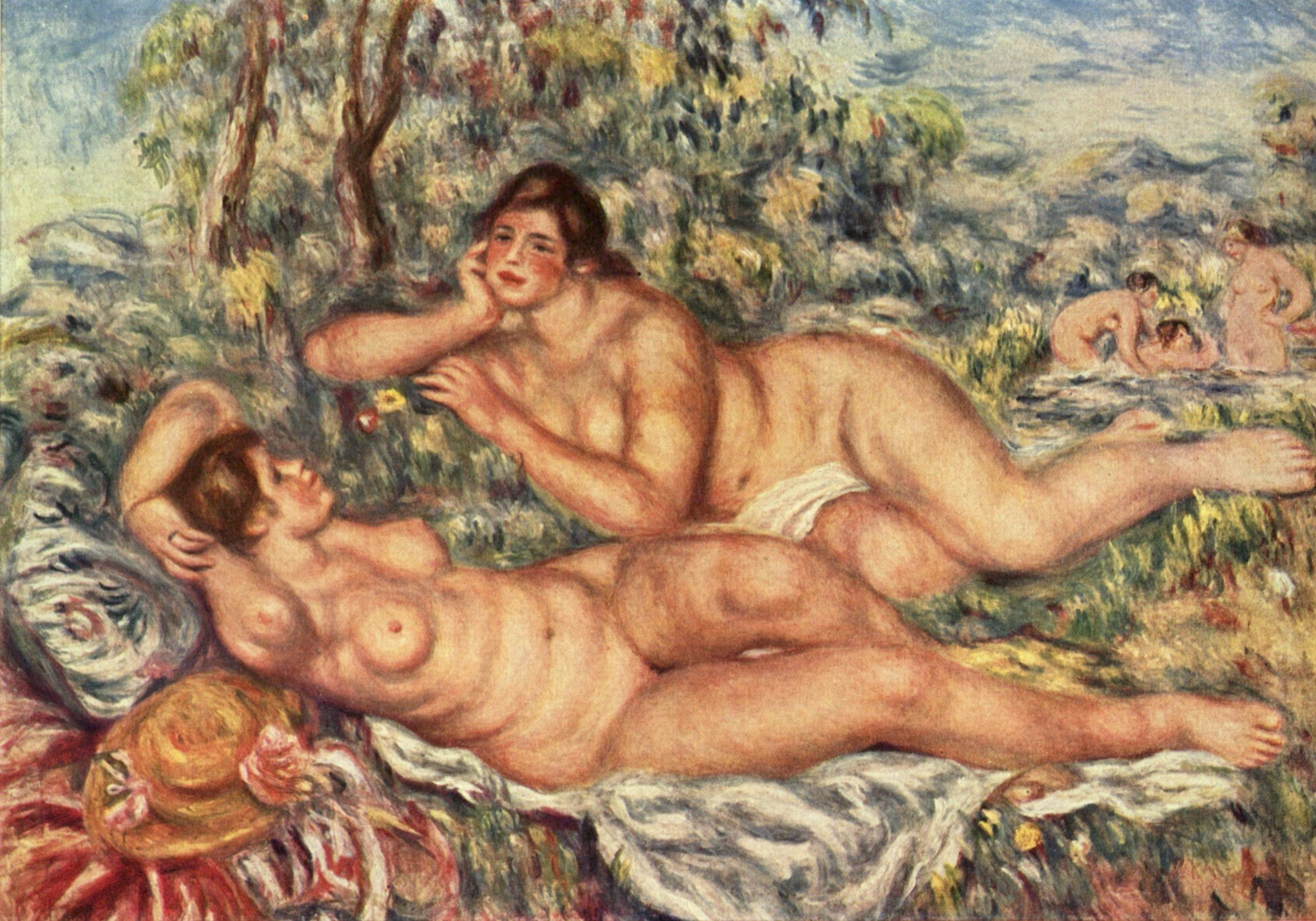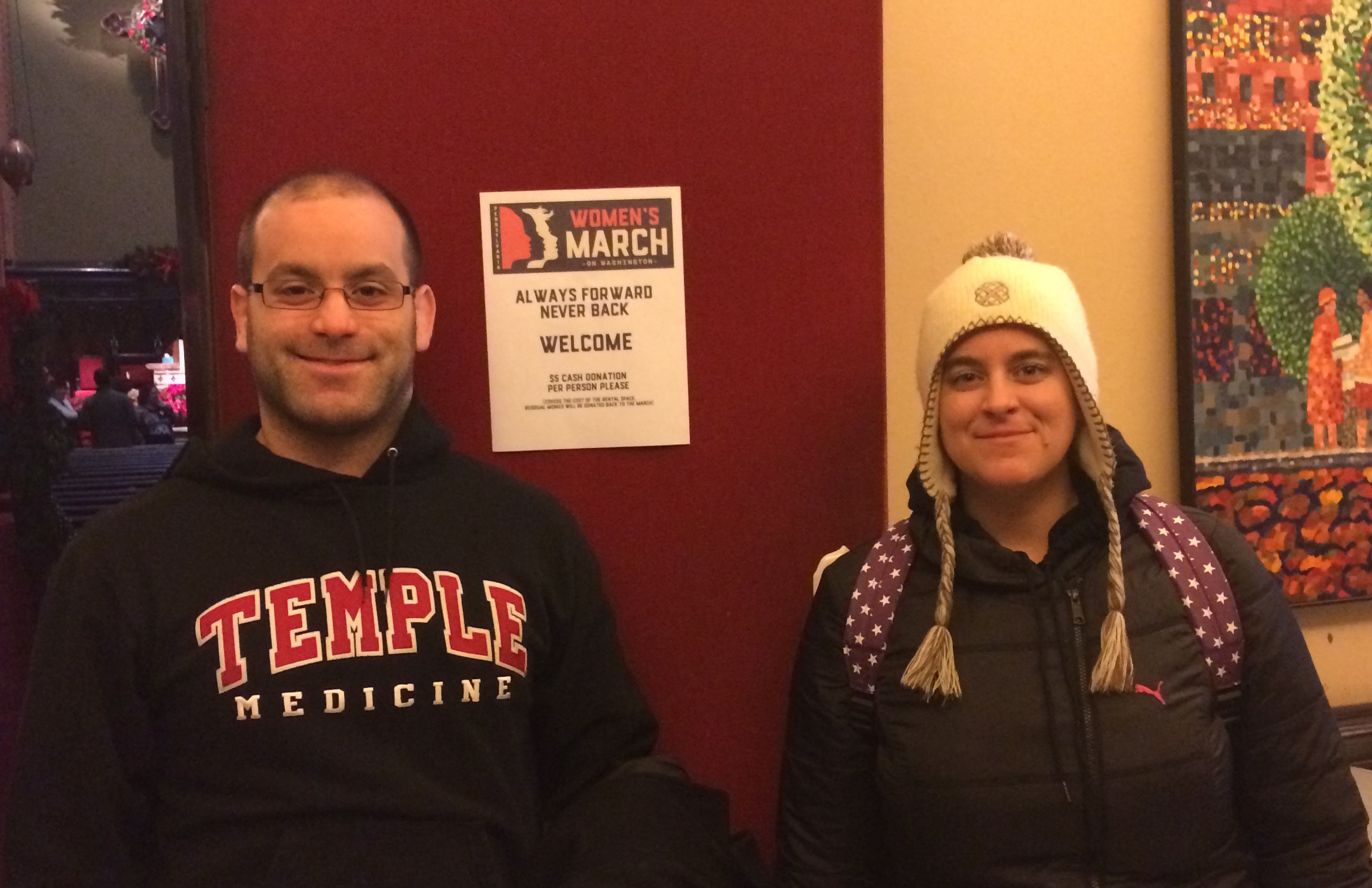Recently I listened to an episode of Throughline called “There are No Utopias.” It features a long interview with the historian Robin Kelley, who is an expert on social movements in the United States and is well known for his critiques of capitalism as it relates to race. He has also published widely on Black American art, music, and culture.
Listening to this Throughline episode inspired me to start writing some of my podcast-listener thoughts again, and there were several things in this episode that struck me. First, I learned some really interesting things about the labor movement during the Cold War. I already had a general sense of a backlash against labor in which it was construed as “anti-American,” but I wasn’t aware of the ways in which labor was actually empowered — or felt empowered — during the Cold War. And that came from a couple different angles: the feeling of connection to a global movement of working people, on the one hand, and the pro-labor policies and laws enacted by FDR on the other.
Kelley outlines this bit of history — how, during the Great Depression, Communist organizers were able to mobilize farmers and workers in Alabama, thanks to a confluence of events and circumstances — in order to give us some rich historical context for the ongoing struggle of Amazon workers in Bessemer to unionize. In the process, he gives us a much clearer understanding of why and how that effort was so energizing.
Another thing I really appreciated about this episode of Throughline was the way it helped me to think about my own teaching, especially when I have to teach Marx. As someone with a rudimentary understanding of critical race theory and its critique of how institutions can reproduce racial inequalities in income, health, education, and other areas, I have a fairly clear picture of some of the intersections between race and class. But when it comes to the idea of racial capitalism, my conceptualizations are a little more vague and intuitive (in part because I have not done enough of my own homework in this). So listening to Robin Kelley talk through his ideas was really helpful.
In discussing Cedric Robinson’s concept of racial capitalism, Kelley says:
“Cedric is fond of quoting Otis Madison, who was a colleague of his, who basically says, you know, racism wasn’t created for Black people. For Black people, guns and tanks are sufficient. It was created for white people to convince them – right? – that somehow you need to be on the side of the people who exploit you, you know? And that is the magic of racial capitalism. The secret to racial capitalism is a capacity to, once again, capture white working people who are convinced that somehow being white is a thing and that they deserve some things as a result of it. And yet it ends up exploiting them as well, but differentially.”
This concept wasn’t new to me, but it was useful to hear it explained in this way, because I think, then, you can begin to see specific manifestations of it. For example, a 2020 New Yorker article, “A Preventable Cancer is on the Rise in Alabama,” describes a panel of working class white men in Tennessee who state that they are opposed to government services such as Medicaid – while at the same time, they admit to benefiting from those exact same services. So they were opposed to the same services they said they benefited from. The article does not describe this contradiction explicitly in terms of racial capitalism, but this is one lens through which this contradiction could be understood. The panelists described their concerns about how, with “government” programs, people on welfare and “illegal mothertruckers” benefit from such services at the expense of “ordinary” Americans. The racial connotations of those sentiments are as clear as day.
In essence, the New Yorker article theorizes that the reason poor and working class white people are against such services boils down to racism and the fear that “others” will also benefit from them. The author mentions a book called Dying of Whiteness, which argues that “people who voiced such views, fuelled by racial animosity and ‘the toxic effects of dogma,’ ended up supporting policies that put their own lives at risk.”
I’m not sure this is a perfect illustration of how I understand racial capitalism, because it is focused more on state services rather than private capital and the exploitation of labor. But Kelley’s description of Robinson’s definition, above, feels relevant because it’s an example of white people acquiescing to their own oppression as a result of having been “captured” by the idea that whiteness is a thing, and that they deserve some things as a result of it. (More to come below, however, on how Kelley links the role of the state to the idea of racial capitalism.)
When I teach Marx, I try to show how the link between race and class is much more complex than it might seem on the surface. One way of interrogating this, I think, is to look at the ways corporations appropriate the discourse of things like Black History Month and, in recent years, Black Lives Matter, in their advertising; and then look into what their labor practices are actually like. And this is how the episode of Throughline opens before introducing Kelley. The co-host Ramtin Arablouei says, after presenting a compilation of saccharine Black History Month themed ads:
“These are all advertisements from AT&T, Dick’s Sporting Goods, Google and Peloton for Black History Month. And this is just the start. There are so many more of these ads you can find easily online. They feature Black Americans on the move, working hard, laughing, being inspired. Sometimes we see historical figures like Martin Luther King Jr. or Rosa Parks in them. They are reminders that these companies want consumers to believe that they very much care about Black people and their history. Yet the hypocrisy is hard to ignore and very cringe. Companies like AT&T and Google have been accused of unfair labor practices by their Black employees.”
The idea that capitalism is dependent on racism is, in my understanding, what is at the heart of the concept of “racial capitalism.” It’s an idea that I am happy to accept, but that I’ve also had a tough time making intellectual sense of, precisely because of advertisements like those referenced above. I follow the idea that there can be no justice or liberation under a capitalist system, because exploitation is a defining aspect of capitalism. And I follow the idea that the capitalist world system as it has developed is dependent on racism. But that is what has made me so skeptical of certain ways of talking about “equality.” I first went through this in my journey through feminist literature and thought – is the goal really equality within an exploitative system? Women should have the right to work and pursue careers, and women should be allowed to participate in politics, yes… but is that really the end goal, when the structures and institutions themselves are what need changing? Is the goal really for women to just have equal opportunity to become powerful and exploit others in the same way that men have historically done? So for me, when I started to see ads by big companies capitalizing on Black identity, I had many of the same thoughts about race; in addition to Arablouei’s reaction of the ads being cringe because of their hypocrisy. The quote below from Abdelfatah explaining Fred Hampton’s concept of “liberation” does a great job of describing what I mean here.
So, couldn’t you have a system of capitalism where all identity groups are able to join a ruling class and participate in the exploitation of workers and the poor? Couldn’t exploitation be based purely on something like caste, or lineage? Already, in the US, many people have this idea that poor people are poor because they aren’t as skilled, or they just don’t work hard enough. Couldn’t a version of capitalism rely on something like that? Or couldn’t there be some other way of justifying the exploitation of one group and the rule of another?
This interview helped me to understand the idea that a non-racial capitalism is not possible more clearly, and I think the reason is that Kelley frames it by referring to the “racialization” of certain groups of people. This way of framing it helps me to look at it from another angle, because — if we remember that race is socially constructed — then almost any social identity marker can be racialized. Capitalism relies on the existence of an exploited class — and the only way (or a very good way) to ensure that class doesn’t unite, doesn’t question their oppression as a class, is to sow divisions among them so that some of them believe they are superior, or of a higher caste, than others (and, I’d argue, a sufficient percentage of the lower caste internalizing that idea; guns and tanks might be sufficient, as per Robinson’s definition, but wouldn’t it be even better if the lower caste blamed themselves for their disadvantage?). I think that, maybe, part of this can also come down to how we’re defining “race.” But after listening to this interview, it is becoming more difficult for me to imagine a version of capitalism that is non-racial that would also be able to survive for very long. In Kelley’s words, “the secret to capitalism’s survival is racism.”
More importantly, I think that my original questions around this idea might have been missing the point. When Kelley talks about “creating” a version of capitalism that is non-racial, it occurred to me while listening to this interview that he doesn’t mean “creating” from scratch in a hypothetical universe, the way I’d been thinking about the concept up until now. Maybe the idea is that creating a non-racial version of capitalism is impossible based on the system we have now, with the history we are all already a product of. And, really, that is the more interesting and more relevant discussion.
“So racial capitalism for [Robinson] is a way of not describing a type of capitalism but of establishing that capitalism extracts wealth and structures value by assigning differential value to human life and labor – that is to say, some workers are more valued than others because of how they’re racialized. So what that means is that whole groups of people are determined to be less human. Certain groups are subject to slavery or land dispossession, like Indigenous people, denied citizenship. They turned into migrant labor. Migrant labor hardly has ever been racially neutral.”
There is also a discussion in this episode about a Fred Hampton speech in which he says “we understand that racism is an excuse used for capitalism. And we know that racism is just – is a byproduct of capitalism.” Kelley and the hosts of the show talk about the ways in which this might contradict the idea of racial capitalism as described by Robinson, but to be completely honest, I am not really seeing how. If anyone can explain further, please comment. Maybe describing it as a “byproduct” implies that capitalism is not necessarily dependent on racism? I don’t want to spend a lot of space reproducing this part of the interview – you can listen to it yourself. But it sounds like maybe it boils down to how much emphasis is put on race versus class. For example, the co-host Rund Abdelfatah elaborates on Hampton’s concept of liberation:
“Liberation – we usually hear that and think about political freedom or, in the context of Black history, freedom from enslavement. But the liberation Fred Hampton and other Black Marxists were advocating for fell more in line with the liberation of “The Communist Manifesto.” They believed that true freedom must include freedom from the economic oppression of capitalism, that the working classes who represent the majority of the people should be in control of the country instead of the elites.”
Kelley ends with some thoughts that really stuck with me. To paraphrase, or to give my interpretation of his final thoughts: there can be no utopia, but at the same time the struggle for it will never end. It reminds me of a quote someone shared with me when I was in college, most likely apocryphal and attributed to Gandhi, which I can find no trace of by Googling: “It’s impossible to win the fight, but imperative that you keep fighting it.” In Kelley’s words:
“We have to keep remaking our vision over and over again and remind us what we’re doing is only struggle, this – only struggle. No promise of liberation, you know, only the promise of struggle. And what that means is that we have to consciously rethink where we are. … And at the center of all that, of course, is love – agape, as Dr. King would say, the constant struggle to make community. Because the deeper our communities, the harder it is to break us apart… With all of our mistakes and errors and all of our misjudgments, we move forward together. And that’s without the expectation that there’s going to be some kind of rainbow at the end at which we’re all going to be happy. …
“I avoid optimistic and I avoid pessimistic [laughs]. I don’t even use hope; I always use struggle. And why do I do that? Because I think that you cannot be an intellectual in a think tank, sitting around thinking about these things on your own or on a blog and decide what needs to be done. You can only do it in struggle with other people because that’s the source of ideas.”
In a weird way, I find this idea – that there is no promise of liberation, only struggle – kind of empowering. My goal doesn’t have to be the liberation of all humankind; just the continuation of the struggle in its direction.
Links and Resources:
Podcasts and videos:
Throughline: There Are No Utopias
Code Switch: Do The Golden Arches Bend Toward Justice?
Code Switch: Soul City: A Utopia For Black Capitalism
Kimberly Jones, How Can We Win
The Roxane Gay Agenda, Our Tax Code is Racist (w/ Dorothy A. Brown)
Chris Smalls on the Daily Show, The Man Who Took On Amazon and Won
John Oliver, Union Busting
Books and articles:
Cedric Robinson, Black Marxism: The Making of the Black Radical Tradition
Robin D. G. Kelley, “What Did Cedric Robinson Mean by Racial Capitalism?” in The Boston Review
Kwamé Turé and Charles V. Hamilton, Black Power: The Politics of Liberation in America
Anne Case and Angus Deaton, Deaths of Despair and the Future of Capitalism
Jonathan M. Metzl, Dying of Whiteness: How the Politics of Racial Resentment Is Killing America’s Heartland
Eyal Press, “A Preventable Cancer is on the Rise in Alabama,” in The New Yorker
Michelle Alexander, The New Jim Crow: Mass Incarceration in the Age of Colorblindness
Dorothy A. Brown, The Whiteness of Wealth: How the Tax System Impoverishes Black Americans – and How We Can Fix It
Robin D. G. Kelley, Race Rebels: Culture, Politics, And The Black Working Class

holding signs that say “Race mixing is communism”






